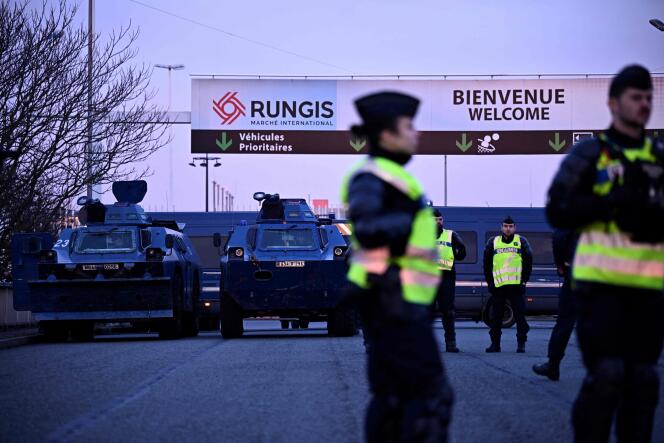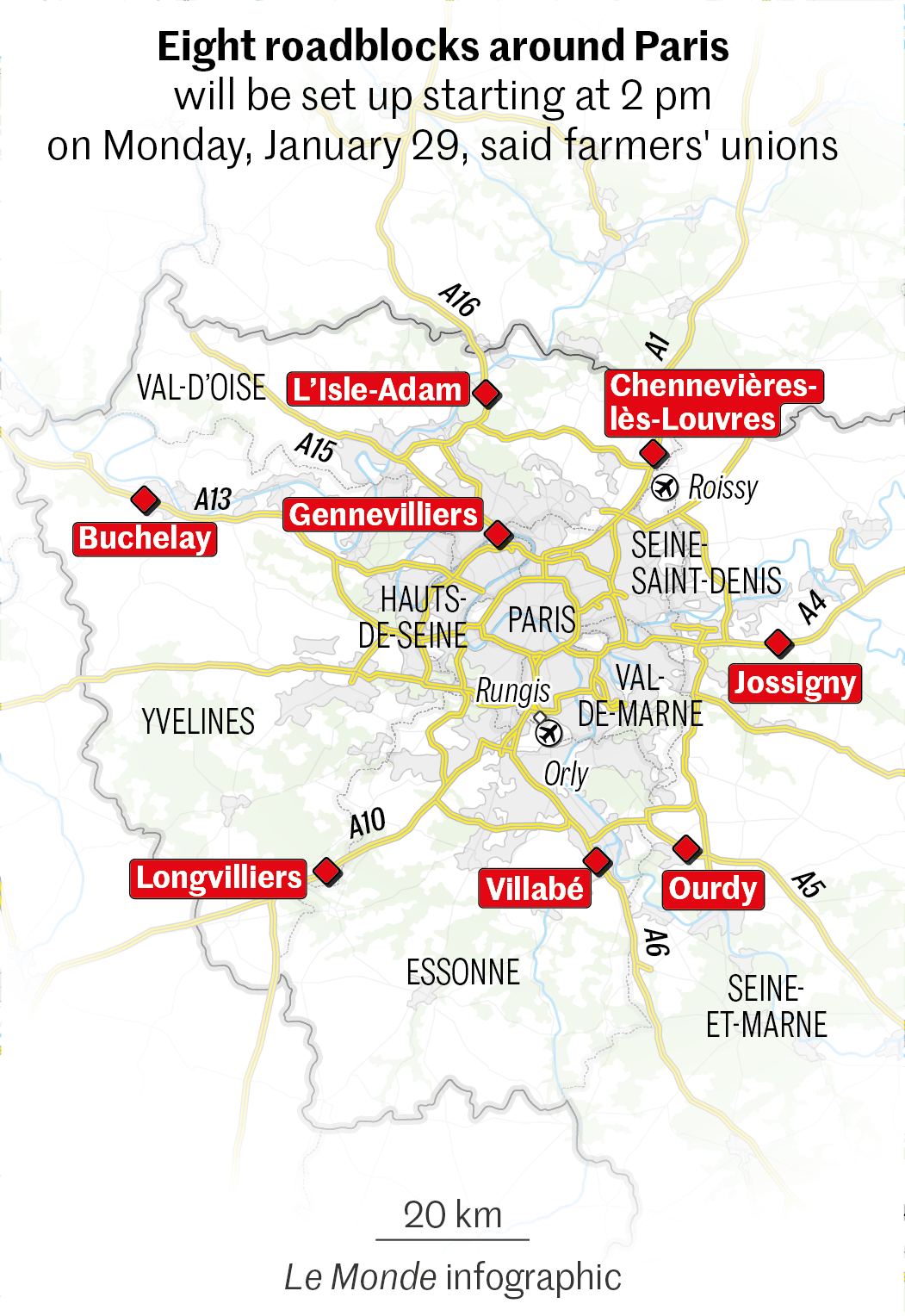


Faced with the threat of a "siege of Paris" made by farmers on Monday, January 29, Interior Minister Gérald Darmanin had a complex equation to solve. On one hand, he must protect the interests of unions that have considerable power to cause trouble, and whose demands are also popular with the general public. On the other, he needs to contain any risk of unrest, 24 hours before Prime Minister Gabriel Attal's government policy speech to the Assemblée Nationale on Tuesday. On top of this, any long-lasting crisis requiring the mobilization of large numbers of police officers could have an impact on the Paris Olympic Games this summer.
On Sunday evening, at the end of a meeting of the interministerial crisis unit, Darmanin once again insisted on "moderation" from law enforcement agents, instructing them to refrain from "intervening at the blockade points" and instead work to "secure them." Although the details of this "defensive" operation are not yet known, 15,000 police officers and gendarmes were to be deployed Monday to prevent incidents and serious blockades around large cities.
Footage of the gendarmerie's armored vehicles deployed on the outskirts of the wholesale market at Rungis, just outside Paris, acted as a show of force. Several red lines have been drawn – not only at Rungis, the Paris region's food supply point, but also around airports and at points of entry into Paris.

Since the beginning of the protests, Darmanin has been experimenting with the theory of de-escalation, by which law enforcement aims to prevent incidents by focusing on appeasement rather than martial declarations. It is a change in tactics compared with recent social movements. On Thursday, January 25, appearing on TV channel TF1's news, the interior minister said he didn't want to respond to "the suffering [of farmers] by sending in the CRS [riot police]," as hundreds of tractors and other farm machinery blocked entire stretches of freeway. "Are they attacking public buildings, are they setting fire to public buildings? That's not the case," he said.
Since then, the premises of the customs office in Nîmes have been set on fire and the parking lot of a Leclerc Drive drive-in supermarket was damaged in Clermont-l'Hérault, also in the south. A week earlier, the offices of the regional directorate for the environment, development and housing were blown up in Carcassonne – graffiti from the Winegrowing Action Committee was found on site.
Yet none of these actions, nor the fire at the headquarters of the Agricultural Social Security in Narbonne, also southern France, were enough to change the minister's calls for restraint. His message was echoed by union leaders. "We're dealing with agricultural unions that are well known, responsible and in permanent dialogue with the police or the police prefectures," said Frédéric Lauze, national secretary of the National Police Commissioners' Union, on BFM-TV on Sunday.
You have 25% of this article left to read. The rest is for subscribers only.
